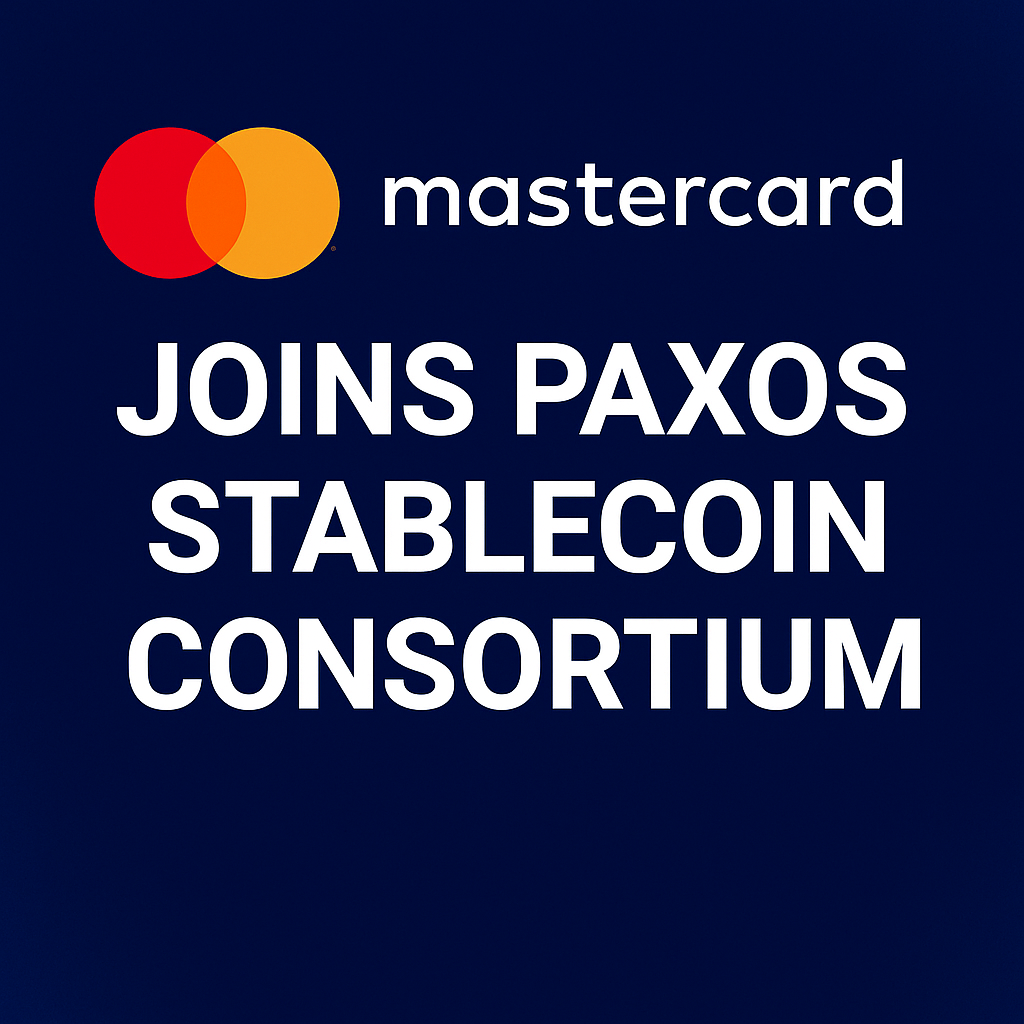Mastercard, a global payments giant, has officially joined the stablecoin consortium led by Paxos, alongside other fintech heavyweights including Fiserv and VanEck. The move marks a pivotal moment in the convergence of traditional financial infrastructure and blockchain-based innovation.
💳 Why This Matters
Mastercard’s involvement signals more than passive interest — it reflects a clear commitment to institutional-grade digital asset rails. The Paxos consortium is focused on creating a regulated, interoperable network for stablecoins, built to meet the expectations of banks, merchants, and regulators alike.
With Mastercard now in the mix, that network gains:
- Trusted settlement infrastructure
- Global merchant reach
- Real-time cross-border capabilities
🧩 Strategic Alignment
This is not Mastercard’s first foray into crypto. The company has previously:
- Piloted blockchain-based settlements with CBDCs and private banks
- Offered crypto-linked card products with exchanges
- Partnered with regulators on digital ID and AML innovation
But by joining a stablecoin governance framework, Mastercard shifts from enabling access to helping shape the rules.
🌍 Impact on the Industry
- Regulatory Momentum
With MiCA in Europe and stablecoin legislation advancing in the U.S., Mastercard’s involvement lends credibility to compliant models. - Commercial Adoption
Millions of merchants using Mastercard’s infrastructure could soon accept or settle in stablecoins — starting with regulated partners like Paxos. - Network Interoperability
If the consortium succeeds, it could bridge gaps between PayPal USD, JPMorgan’s JPMD, and upcoming bank-issued tokens like Fiserv’s FIUSD.
🧠 Final Take
Mastercard joining the Paxos consortium isn’t just a win for one network — it’s a vote of confidence in compliant, transparent, and institution-ready stablecoins.
This could accelerate the path to real-world usage, provided that the infrastructure remains regulator-approved, merchant-friendly, and tech-resilient.
As stablecoins move from niche fintech tools to mainstream financial plumbing, the players shaping their governance may matter as much as the tokens themselves.




